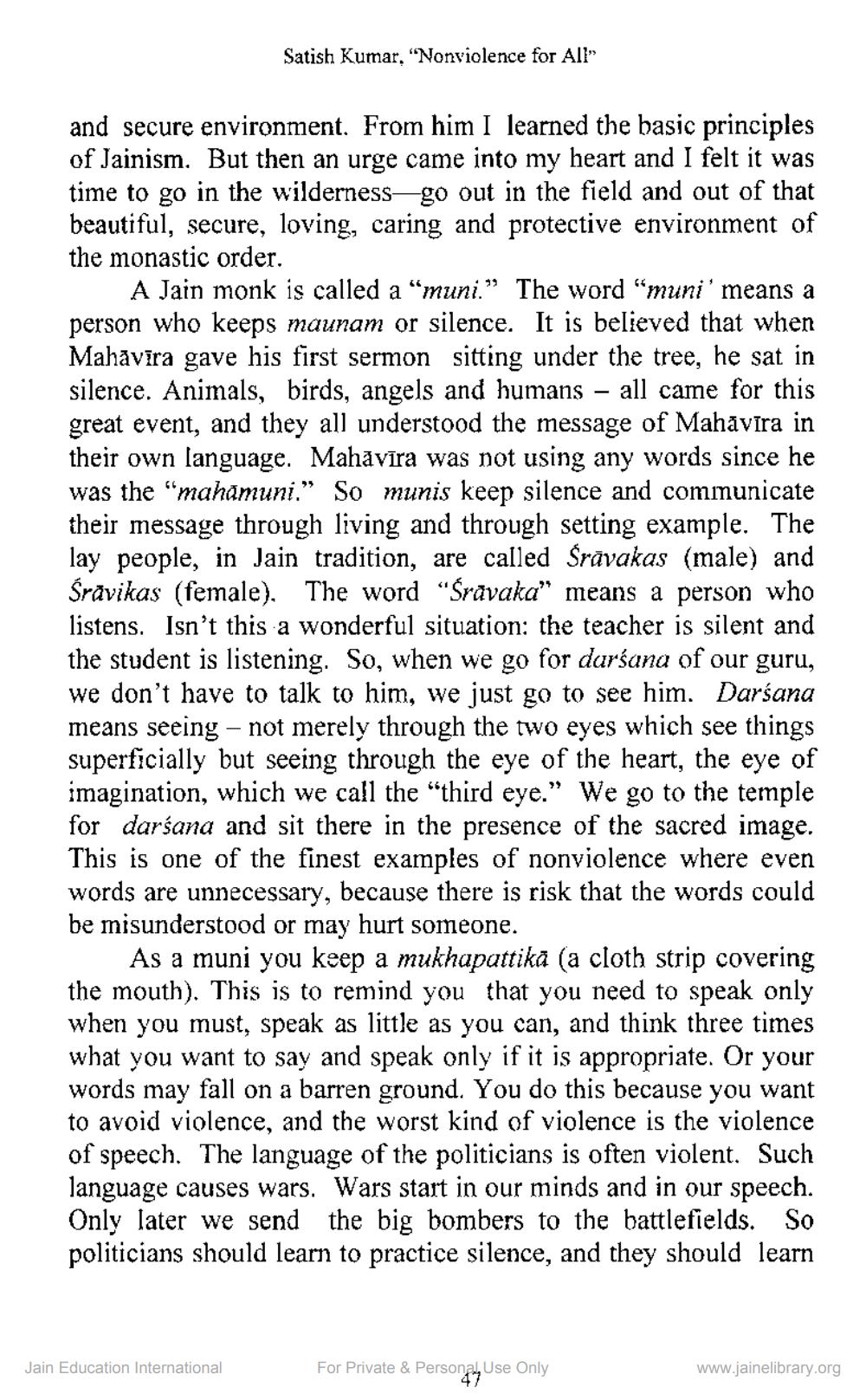Book Title: Nonviolence for All Author(s): Satish Kumar Publisher: Z_Lessons_of_Ahimsa_and_Anekanta_for_Contemporary_Life_014006.pdf View full book textPage 2
________________ Satish Kumar, "Nonviolence for All” and secure environment. From him I learned the basic principles of Jainism. But then an urge came into my heart and I felt it was time to go in the wilderness go out in the field and out of that beautiful, secure, loving, caring and protective environment of the monastic order. A Jain monk is called a "muni.” The word "muni' means a person who keeps maunam or silence. It is believed that when Mahāvīra gave his first sermon sitting under the tree, he sat in silence. Animals, birds, angels and humans – all came for this great event, and they all understood the message of Mahāvīra in their own language. Mahāvīra was not using any words since he was the "mahamuni." So munis keep silence and communicate their message through living and through setting example. The lay people, in Jain tradition, are called Śrāvakas (male) and Śravikas (female). The word "Sravaka" means a person who listens. Isn't this a wonderful situation: the teacher is silent and the student is listening. So, when we go for dursuna of our guru, we don't have to talk to him, we just go to see him. Darsana means seeing - not merely through the two eyes which see things superficially but seeing through the eye of the heart, the eye of imagination, which we call the third eye." We go to the temple for darśana and sit there in the presence of the sacred image. This is one of the finest examples of nonviolence where even words are unnecessary, because there is risk that the words could be misunderstood or may hurt someone. As a muni you keep a mukhapattikā (a cloth strip covering the mouth). This is to remind you that you need to speak only when you must, speak as little as you can, and think three times what you want to say and speak only if it is appropriate. Or your words may fall on a barren ground. You do this because you want to avoid violence, and the worst kind of violence is the violence of speech. The language of the politicians is often violent. Such language causes wars. Wars start in our minds and in our speech. Only later we send the big bombers to the battlefields. So politicians should learn to practice silence, and they should learn Jain Education International For Private & Personal Use Only www.jainelibrary.orgPage Navigation
1 2 3 4 5 6 7 8
